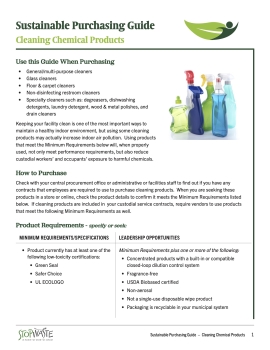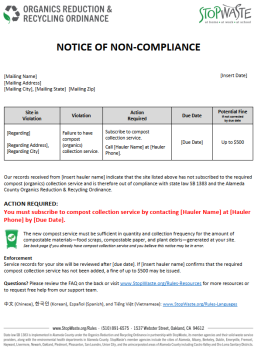Resource Library

No matter the type of printer you have, the cost of the toner over the life of the printer is likely to far exceed the upfront price of that printer. Yet, you can lower toner costs while still getting quality products and reducing associated environmental impacts by choosing remanufactured and/or high-yield toner cartridges.
Read More
Servers are the backbone of our networks and online applications. Data centers are also some of the most energy intensive buildings to operate, consuming 10 to 50 times the energy per floor space of a typical commercial office building. Data centers are also water intensive - among the top-ten water-consuming industrial or commercial industries in the U.S. While smart data center design is key to reducing impacts, the server equipment itself plays a significant role in reducing both energy and cooling loads within data centers.
Read More Read More
Read MorePrint services are often used for high-volume print jobs, mailers, and specialty printing. If your agency directly uses the resulting print job materials, the paper used for the print job must contain a minimum of 30% post-consumer recycled content to comply with California’s Senate Bill 1383, aka. SB 1383, which went into effect January 2022.
 Read More
Read MorePaper fiber is a common material for many office supplies - from sticky notes to storage boxes. Paper office supplies purchased directly by staff must contain a minimum of 30% post- consumer recycled content when equal in cost and function to comply with California’s Senate Bill 1383, aka SB 1383, which went into effect January 2022.

Although all “antimicrobial” products have risks, many conventional disinfectants, such as chlorine bleach, pose more serious risks to custodial workers and building occupants because they contain active ingredients that have been found to cause asthma, cancer, skin sensitization, or other health hazards. Yet, surface disinfectants with more benign health and environmental impacts than conventional disinfectants are readily available, cost effective, and have equivalent or greater efficacy in killing bacteria, viruses, and fungi.
Read More
Janitorial paper products are single-use items primarily used in facility restrooms and break rooms. They may be purchased as stand-alone items or included in a custodial services contract. Any janitorial paper products purchased directly by staff must contain a minimum of 30% post-consumer recycled content to comply with California’s Senate Bill 1383, aka SB 1383, which went into effect January 2022.
Read More
Keeping your facility clean is one of the most important ways to maintain a healthy indoor environment, but using some cleaning products may actually increase indoor air pollution. Using products that meet the Minimum Requirements below will, when properly used, not only meet performance requirements, but also reduce custodial workers’ and occupants’ exposure to harmful chemicals.
Read More Policies
Policies Policies
Policies
While food service ware may not be the first thing you think of when planning an event, being thoughtful about how food and beverages are served can support reducing waste and exposure to toxic chemicals, among other sustainability goals. As part of your planning, first assess whether reusables are available and practical for the application. If disposables are necessary, be sure to also check with your hauler/composter/facility ahead of time regarding what types of items they accept.
Read More